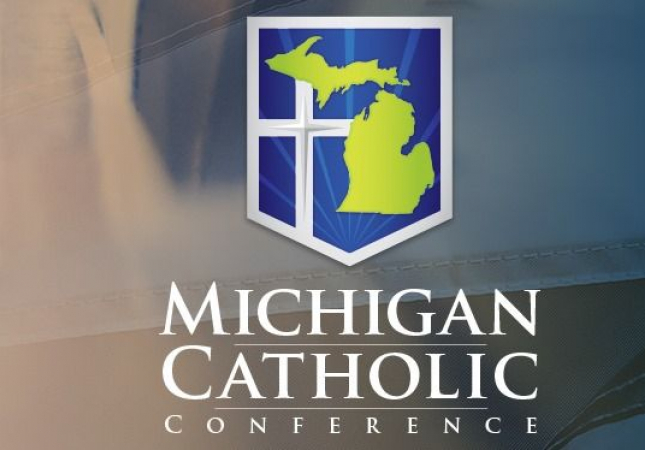
(Lansing, Mich.) -- A majority of Michigan lawmakers are quickly moving a bill to force employers to pay for elective abortions as part of their employee benefit plans, a clear violation of the constitutionally protected rights of conscience for individuals, employers, and faith-based institutions and yet another example of continued abortion extremism in the Legislature, Michigan Catholic Conference (MCC) stated today.
In the span of 24 hours, a Senate committee and the full Senate approved Senate Bill 147, which would force all employers in the state with one or more employees who do not have self-insured ERISA plans to pay for elective abortions as part of their employee benefits plan. If an employer is providing benefits for pregnancy and childbirth, this would also mandate insurance coverage or paid medical leave for elective abortions.
It should be noted the legislation would specifically require adding coverage for termination of a pregnancy. Under Roe, Michigan employers were not required to treat elective abortion the same as pregnancy and childbirth with regards to employee benefits. Abortions due to medical necessity to save the life of the mother were previously covered. This bill breaks from that precedent to now require elective abortion benefits to be the same as any employer-provided pregnancy and childbirth benefits.
The following comments may be attributed to Rebecca Mastee, J.D., Michigan Catholic Conference Policy Advocate:
"No one should be forced to support another person’s choice to have an elective abortion – financially or otherwise. Despite abortion rights supporters frequently mentioning 'choice' and how abortion is 'no one's business,' this bill takes away the choice to decline support for abortions and makes it the business of employers and fellow employees to pay for others' abortions.
"As we stated with regards to separate legislation moving toward the Governor for her likely signature, this is another example of how the passage of Proposal 3 is being used to justify extreme policy changes that go beyond what was permissible even under Roe and beyond the stated intent of Proposal 3 to 'merely' restore Roe."
Senate Bill 147, sponsored by Sen. Erika Geiss (D-Taylor), now heads to the state House for further consideration.
Release from 3-16-2023
Legislature Moves to Promote Abortion Extremism Following Proposal 3
Policymakers Should Refocus Efforts to Support Women in Need, Says MCC
(Lansing, Mich.) – Ending legal protections in state law for unborn children is a significant step backward from protecting the unborn from violence and promoting his or her dignity and sacredness, Michigan Catholic Conference stated today in response to legislation at or on its way to the Governor’s desk that not only revokes a statute prohibiting abortion, but takes the state beyond what was discussed during last year’s Proposal 3 ballot campaign.
While addressing pro-abortion measures now underway in the Michigan Legislature, MCC is also questioning why lawmakers chose to remove from state law criminal penalties for administering an abortion that results in the death of the woman, and repealing a law that bars the advertising or sale of unsafe, unregulated abortion pills, powders, or drugs; two measures that are also likely to be signed into law.
The following comments may be attributed to Rebecca Mastee, J.D., Michigan Catholic Conference Policy Advocate:
“The advancement of these bills, which are likely to be enacted soon, marks the Legislature’s and Governor's willingness to end decades of legal protection in state law for the most vulnerable human lives: unborn children.
“We reiterate our call to public officials to work toward a society where women do not feel that abortion is their only choice when facing a difficult, unplanned, or unwanted pregnancy. Lawmakers should focus their efforts on helping women access the resources needed to support themselves and their families, before, during and after birth.
“Public policies should reflect and the Catholic Church promotes the principle that every human life is sacred and worthy of protection from conception to natural death. Ensuring that every person has a legal right to live without violence at the beginning or end of life should be a fundamental baseline society provides to all members of the human family. Anything less is unacceptable.
“Repealing Michigan's abortion ban ignores that the law was still used under Roe v. Wade to prosecute people who harm women in the process of conducting abortions, including as recently as 2019 in a criminal abortion case where a man who had impregnated his minor stepdaughter forced her to consume abortion pills he illegally purchased online.
“The forthcoming new policy removes from state law the 15-year felony penalty for conducting an abortion that results in the death of a woman. It also removes the ban on advertising or selling unsafe, unregulated abortion pills, powders, or drugs. Repealing these measures endangers rather than protects women, and in doing so reflects an interest in protecting the abortion industry at any cost, to the detriment of women's safety.
“Legislative efforts are now underway to use the passage of Proposal 3 as justification to modify or propose state laws that were never part of the statewide conversation around the ballot measure.
“Additionally, state lawmakers are voting against proposed common-sense safeguards around abortion, such as prohibiting abortion if the baby has been found to have Down’s syndrome or barring sex-selection abortions. Quite simply, the passage of Proposal 3 has brought with it a new era of pro-abortion extremism and violence toward unborn human life in Michigan.
“As previously stated during legislative testimony regarding women considering abortion:
What if society focused on providing her and her family with adequate resources, education and employment opportunities, a support system, quality health care, and helped to make sure her material needs were met?
“MCC and the Catholic Church stand ready to partner with those who wish to make this vision for society a reality.”